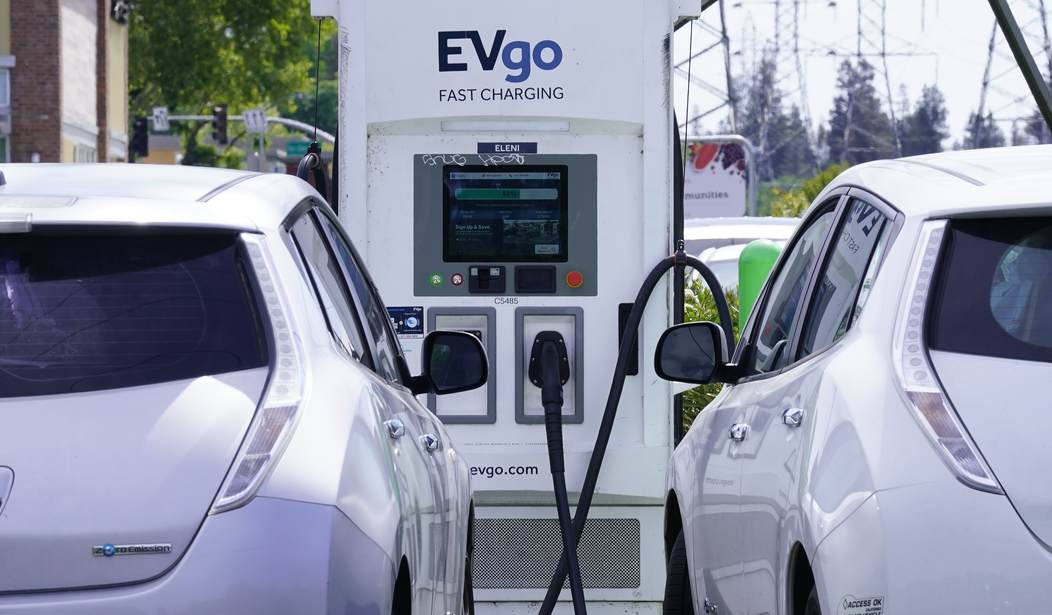It's been years since I first sat in a Tesla Model X. I loved it. I loved all the features, the bells and whistles, and the falcon wing doors — it was a really cool vehicle. I remember falling in love with the car and wanting one. But I wouldn't — and I won't — get one. For all the hype that electric vehicles are getting — even ones made by more common car manufacturers — they don't make much sense. I knew that, but a lot of people who have been suckered into getting electric cars are only starting to realize they've been suckered.
Would you believe that nearly half of American electric vehicle owners regret their purchase? According to McKinsey & Co.'s 2024 Mobility Consumer Pulse, nearly 46% of U.S. electric vehicle owners said they are "very" likely to switch back to gas-powered vehicles for their next purchase.
Ouch.
This shouldn't be all that shocking. Electric vehicles are more expensive and take a long time to charge, and if you want to charge up at home, that's another added expense. So while this news doesn't surprise me, the high percentage of buyer's remorse among electric vehicle owners did surprise Philipp Kampshoff, the head of McKinsey's Center for Future Mobility. He had expected more loyalty among electric vehicle buyers. Out of nearly 37,000 global consumers surveyed, only Australia had a higher percentage (49%) of EV owners wanting to return to gas-powered vehicles.
The survey by McKinsey & Co. also included respondents from Brazil, China, France, Germany, Italy, Japan, and Norway. Interestingly enough, among EV owners in these countries, only 29% expressed a desire to switch back to gas-powered vehicles.
Recommended: Guess How Many High-Speed Internet Connections Biden Built With $42.45 billion
"The biggest reason EV owners cited for wanting to return to owning a gas-powered vehicle was the lack of available charging infrastructure (35%); the second-highest reason cited was that the total cost of owning an EV was too high (34%)," explains Fox Business. "Nearly 1 in 3, 32%, said their driving patterns on long-distance trips were affected too much due to having an EV."
McKinsey's survey did find a slight global improvement in consumer satisfaction with charging availability, but it "still has a long way to go."
Gee, I wonder why. Remember how the 2021 Infrastructure Investment and Jobs Act invested $7.5 billion to build 500,000 charging stations nationwide? Only eight have been built. Naturally, only 11% of EV owners believe their local infrastructure is well-equipped with charge points, 40% report insufficient chargers along highways, and 38% find a lack of nearby chargers. These findings reflect ongoing challenges despite the Biden administration's efforts to promote electric vehicles, and they align with other polls showing substantial reluctance among Americans to fully embrace EVs.
I'm sure most people who buy electric vehicles think they're doing good for the environment, but in reality, they are not. A 2022 study by Emission Analytic revealed that electric vehicles emit 1,850 times more particle pollution from brakes and tires compared to modern gas-powered vehicles equipped with efficient exhaust filters. According to the New York Department of Health, exposure to these pollutants increases health risks like heart disease, asthma, and low birth weight. Moreover, these pollutants can travel significant distances, posing health concerns even in areas far from the source of emissions — much like gas-powered vehicle exhaust.










